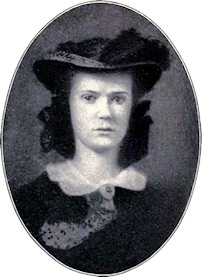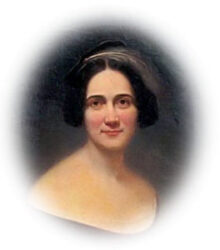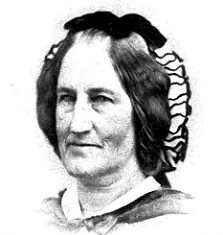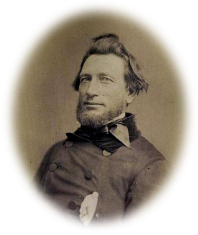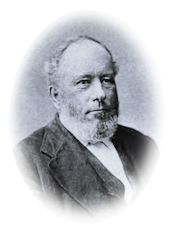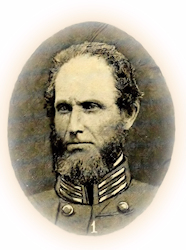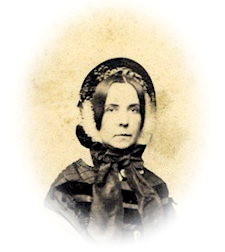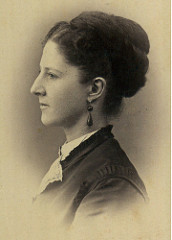Among my papers I find next a letter written by my mother after an illness, during that awful time known as “The Seven Days Battle around Richmond.”
RICHMOND, June 25th, 1862.
” . . . I am getting a great deal better, and went out this afternoon to take a drive with your father. We stopped at Genl. Johnston’s to see how he was, and Mrs. Johnston came out and sat in the carriage with me. He is recovering rapidly, but will not be in the fight, which has in fact, begun. There has been very heavy firing all the afternoon, and there will be a regular attack made at daybreak to-morrow, if the present plan is followed out. I presume it will be, as Genl. Jackson is to move into position to-night, and of course, has to be supported. This was agreed upon last night. What has caused the fight this afternoon we do not know—but I trust it is all right. Jackson and his forces are to make the attack on the rear, and I trust it has all been so planned that McClellan will find himself glad enough to take the road away from, instead of on to Richmond.”
“Thursday 26th.
“I wrote you your father had acted as Aide to Genl. Longstreet. After we got home last evening, your father determined to go to Genl. Longstreet’s Headquarters, to see if there had been any change in the programme since the night before. He did not get back till nearly twelve o’clock—and at that time, the original plan was to be carried out—and he accordingly was off at four o’clock this morning. Strange to say, however, there seems to be an impression in town, that there has been no fighting to-day; not a gun has been heard, and everyone has been on the lookout for tidings. Halsey came in just before dinner and he has heard nothing of it—so I am afraid (I was going to say) that something has disconcerted the plan and I feel quite impatient for your father’s return. He said he would be back some time to-night.”
“Friday night, 27th.
“Yesterday afternoon I took a drive with Halsey and as soon as we got on Church Hill we heard the cannon and it seems the fight had begun at 3 o’clock in the afternoon instead of at daylight as it had been arranged. Your father got back after twelve last night. The news was all good as you have seen, I suppose. We had driven them from Mechanicsville and taken several batteries, etc. The battle was to be renewed this morning at daybreak, and accordingly, off went Papa, and I don’t expect to see him again until midnight or maybe to-morrow. Robert Nicholas, however, told me about sundown that he had left him well an hour or two before and that the Yankees had been driven back six miles. All the accounts we have yet received, altho’ meagre, yet agree that we are in hot pursuit and the enemy trying to get away. God grant that our victory may be complete! I will write more to-morrow when I can tell you what your father says. Good night.”
“Saturday, 28th.
“Your father did not come last night, dear L. I got a note from him early this morning. Thank God, he was unhurt! and remained to look up our wounded Texans. So far our victory has been brilliant, but oh! at what sacrifice of life! Poor Col. Marshall (1st Texas) is killed; so is Lieut. Col. Warwick. His poor mother’s heart will be broken, I fear. (He was an only child.) The Major of the Regiment, too, is dangerously wounded. Genl. Hood is not hurt or was not when your father wrote. God grant your father may be safe now! He expected to be up all night collecting and caring for our wounded. We have heard no cannon to-day and don’t know whether the fighting has continued or not. Cousin Lewis has just been here and says he hears 1,500 prisoners have already arrived, and among them 2 generals. There are all sorts of reports, one, that we have taken eighty officers above the rank of major. Your father thought the battle would be over to-day. I am almost afraid to believe it. Halsey has not been at all in the direction of the fight. He is guarding the batteries on the extreme right, and the contest has all been on the left. He has got his commission for 2nd Lieutenant—or rather, I have got it here for him.”
“Sunday, 29th.
“Another note from your dear father this morning. It was written last night, the other side of the Chickahominy at Headquarters. He says they were still driving the enemy before them and that operations would begin again at daybreak, and that he hoped it would be over to-day. I shall not expect him back until it is entirely concluded. He says the slaughter has been terrible, but our success glorious.”
Subjoined is a short note from the pen of Mrs. James Chesnut, the wife of Senator Chesnut, of South Carolina. Mrs. Chesnut was one of the most brilliant women of her time and as warmhearted as clever, as is shown by this little note. If she had written a volume the tragedy of which she told could not have been more graphically described.
“My dear friend,
“My heart is heavier to-day than it has been since this murderous war began. I daresay I have told you, over and over, as I always talk of what is uppermost, that my cronies in Columbia, my bosom friends, were Mrs. Preston, Mrs. McCord and Mrs. Izard. Captain Cheves McCord, only son of my friend, lies dead at a Mr. Meyers’ only a few doors below us. I did not know he was here. Mr. Chesnut had a letter from him yesterday dated Fredericksburg. He was wounded at the Second Manassas, two balls in his leg, and one in his head. Contrary to the advice of his doctors, he had rejoined his company, and this is the end. He died in convulsions from a pressure on the brain. His mother is expected by every train—poor thing—I could not sleep for thinking of her. She seemed to have but one thought in this world—’My Son.’ He is barely twenty-one—is married—his wife a beautiful girl—unfortunate and miserable and wretched is it all!
“. . . I will try to see you as soon as possible, but I will not, as I had hoped, take the box with you. This unhappy boy, lying dead so near me, makes the thought of theatres hateful to me just now. . . . I feel you are too true hearted a mother not to sympathize.
“Your friend, M. B. C.”
